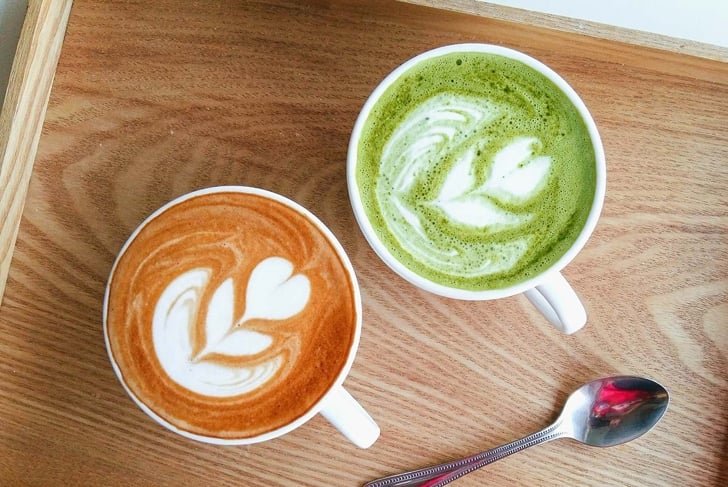Do you enjoy the rich flavor and caffeine boost of coffee, or do you prefer the soothing lift from earthy matcha green tea? The debate over which beverage reigns supreme is ongoing, with compelling arguments from both sides. Each drink brings its own unique chemistry, delivering various health perks along with a pleasurable sipping experience.
Caffeine Content
Caffeine plays a crucial role in our appreciation for coffee and tea. The caffeine content in these drinks can fluctuate based on factors like quality, type, and brewing method. On average, brewed coffee provides between 65 to 120 mg of caffeine per cup, with Arabica beans typically having slightly less caffeine compared to Robusta beans. A standard cup of matcha, made using about 1/2 teaspoon of matcha powder, contains 38 to 88 mg of caffeine. Although matcha has less caffeine than coffee, it offers a more potent caffeine buzz compared to other green tea forms.
Taste
Does the rich aroma of freshly ground coffee or the grassy scent of matcha captivate your senses? Both beverages possess distinct flavors and aromas. Coffee contains over 800 volatile compounds, lending it a wide array of flavor profiles, from fruity to nutty, chocolaty to floral, or earthy. Matcha is often hailed as the most aromatic green tea, with unique growing practices that impart a distinct umami flavor and reduce bitterness compared to other teas.
Nutrients
Coffee and matcha are both rich in antioxidants, helping to shield your body from oxidative stress. Coffee is high in chlorogenic acid, which plays a role in lowering inflammation, and also contains niacin (vitamin B3) alongside minerals like potassium and magnesium. Matcha is notably recognized for its catechins, particularly epigallocatechin gallate (EGCG), which supports mental and physical health, and additionally supplies amino acids, manganese, copper, iron, zinc, and even vitamin C.
Health Benefits
Both coffee and matcha offer numerous health advantages, although their distinct compositions result in different effects on the body.
Energy
Thanks to its higher caffeine content, coffee invigorates the central nervous system, enhancing alertness, improving concentration, and temporarily mitigating fatigue. The caffeine in coffee can even boost physical performance by increasing adrenaline levels and enhancing muscle contractions. Conversely, if you find coffee’s stimulation too intense, matcha provides a gentler and more sustained energy lift. The combination of caffeine and L-theanine in matcha enhances alertness without causing the jitters or crashes often associated with coffee consumption.
Mood
Feeling stressed? The L-theanine in matcha acts as a natural stress reliever. It triggers the creation of alpha brain waves, associated with a calm yet alert state. Research indicates that students who consume matcha daily have lower levels of stress hormones. Coffee can also elevate mood; studies show that coffee drinkers experience lower rates of depression, with optimal benefits arising from about one and a half cups.
Heart Health
Packed with antioxidant polyphenols, both coffee and matcha are beneficial for heart health. Research suggests that moderate coffee consumption (3 to 5 cups daily) can reduce the risk of cardiovascular diseases, including strokes and heart failure. Matcha’s primary heart-protective effect comes from EGCG, which helps safeguard heart tissue from inflammation and free radical damage.
Lower Cancer Risk
The EGCG and L-theanine found in matcha may bolster the body’s natural tumor-fighting capabilities, with promising evidence particularly concerning reduced recurrence of breast cancer. For many, coffee serves as a significant source of dietary antioxidants, sometimes contributing more than fruits and vegetables. Correspondingly, surveys reveal that individuals consuming multiple cups of coffee exhibit an 18% lower incidence of cancer compared to those with minimal coffee intake.
Weight Management
Matcha is an excellent addition to any weight management routine. Drinking matcha may curb overeating tendencies, while its blend of EGCG and caffeine helps regulate blood sugar levels and boosts fat metabolism. Similarly, the caffeine and antioxidant content in coffee can stabilize blood sugar and enhance fat metabolism. A study noted that individuals maintaining a healthy weight tended to drink more coffee compared to the general population.
Preparation
Coffee and matcha have distinct preparation methods. A traditional coffee begins with freshly ground beans, which are then carefully measured into a filter or press based on desired strength. Experts recommend using 1 to 2 tablespoons of ground coffee for every 3/4 cup of water, followed by pouring boiling water over the grounds to extract essential oils, flavors, and nutrients for a rich brew. In contrast, matcha isn’t brewed like traditional loose-leaf tea; it consists of finely powdered tea leaves stirred directly into hot water, typically using about 1/2 teaspoon per cup. Matcha enthusiasts often advise whisking in a zigzag motion until well blended, creating a frothy layer on top.
So, who comes out on top in the coffee versus matcha showdown? It ultimately comes down to personal preference! If you crave a quick caffeine boost, go for coffee. If coffee’s effects are too intense for you, give matcha a try. Both beverages offer various nutritional benefits, health perks, and delightful flavors, allowing for a choice that fits your taste.





